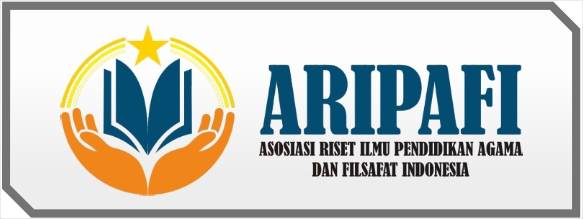Siti Walidah : Pelopor Emansipasi dan Pendidikan Perempuan Dalam Muhammadiyah
DOI:
https://doi.org/10.61132/reflection.v2i1.486Keywords:
Siti Walidah, Aisyiyah, Women’s EducationAbstract
Siti Walidah, or Nyai Ahmad Dahlan, became an important figure in fighting for women's education and emancipation through the establishment of the 'Aisyiyah organization. Siti Walidah's struggle was based on the patriarchal cultural conditions in the past that limited women's access to education and social roles. Siti Walidah, through her progressive thinking, tried to change this paradigm by establishing a women's organization under Muhammadiyah that emphasized the importance of education, empowerment, and gender equality. This study aims to analyze the thoughts and contributions of Siti Walidah in shaping the role of women, especially through education and empowerment, and to trace its impacts that are still felt today. The research method used is qualitative with a historical approach, through literature studies of primary documents such as the archives of Muhammadiyah and 'Aisyiyah, as well as the biography of Siti Walidah. The data were analyzed descriptively-interpretively to understand the social, cultural, and religious contexts that underlie her struggle. The results of the study show that through the 'Aisyiyah organization, Siti Walidah promoted women's education, opposed discriminatory practices such as forced marriage, and developed various social and economic empowerment programs. Another significant contribution was the establishment of educational institutions, such as TK 'Aisyiyah Bustanul Athfal and Aisyiyah University.
References
Aeni, Q. ’, & Binaningrum, B. (2022). Gagasan Perempuan Berkemajuan. Fakultas Ushuluddin, 4(1), 1–9. https://doi.org/10.15408/paradigma.v4i1.24256
Cahyaningrum, L. W. (2018). CONTRIBUTION OF SITI WALIDAH IN THE NATION CHARACTER BUILDING THROUGH ‘AISYIYAH MOVEMENT. Iseedu: Journal of Islamic Educational Thoughts and Practices, 2(1), 68–93.
Diwanti, D. P., Andriyani, E., & Herawati, R. S. (2019). Pemberdayaan Perempuan Melalui Bina Usaha Ekonomi Keluarga ‘Aisyiyah (BUEKA). NUSANTARA: Jurnal Ilmu Pengetahuan Sosial, 6(2), 194–207.
Djamal, M. (2015). Paradigma Penelitian Kualitatif. Yogyakarta: Pustaka Pelajar.
Fathurrahman, F., & Hayudi, H. (2020). History of The Establishment of ‘Aisyiyah Bustanul Athfal Pre-School in 1919-2019 in West Papua. Proceedings of the First International Conference on Science, Technology and Multicultural Education, ICOCIT-MUDA, July 25th-26th, 2019, Sorong, Indonesia.
Irawaty, I., & Darojat, Z. (2019). Kedudukan dan peran perempuan dalam perspektif islam dan adat minangkabau. Hayula: Indonesian Journal of Multidisciplinary Islamic Studies, 3(1), 59–76.
Kurnia, D. (2018, January 18). Tanwir Aisyiyah Diharapkan Mampu Gerakan Ekonomi Perempuan. Retrieved November 30, 2024, from https://news.republika.co.id/berita/p2qn3i335/tanwir-aisyiyah-diharapkan-mampu-gerakan-ekonomi-perempuan
Lubis, A. Y. (2015). Pemikiran Kritis Kontemporer. Jakarta: PT.Raja Grafindo.
Makhrus, M., & Mukarromah, S. (2020). Optimalisasi pengelolaan zakat produktif dalam pemberdayaan masyarakat berbasis komunitas pada pimpinan daerah ‘Aisyiyah Kabupaten Banyumas. Dimas: Jurnal Pemikiran Agama Untuk Pemberdayaan, 20(1), 91–104.
Mardiah, N. I., Luthfiyah, L., Sadat, A., Ihlas, I., Ramadhan, S., & Kusumawati, Y. (2022). Analisis Pergerakan Pendidikan Perempuan Serta Kiprah Siti Walidah Di Aisyiyah. Tajdid: Jurnal Pemikiran Keislaman Dan Kemanusiaan, 6(1), 60–75.
Moleong, L. J. (2008). Metodologi Penelitian Kualitatif. Bandung: PT. Remaja Rosdakarya.
Nisa, E. A. (2022). Pandangan dan Peran Organisasi Aisyiyah terhadap Pendidikan di Indonesia Tahun 1914-1923. Warisan: Journal of History and Cultural Heritage, 3(2), 51–57. https://doi.org/10.34007/warisan.v3i2.1516
Noer, D. (1996). Gerakan Modern Islam di Indonesia 1900-1942. Jakarta: LP3ES.
Octofrezi, P. (2020). Sejarah Pendidikan Islam Perempuan dari Masa Klasik, Sebelum dan Sesudah Kemerdekaan Indonesia. AL-MANAR: Jurnal Komunikasi Dan Pendidikan Islam, 9(1), 33–54.
Pimpinan Pusat ’Aisyiyah. (n.d.). Program ’Aisyiyah. Retrieved November 30, 2024, from https://aisyiyah.or.id/program/
Remiswal, R., Fajri, S., & Putri, R. (2021). Aisyiyah dan Peranannya dalam Meningkatkan Derajat Kaum Perempuan. Kaganga:Jurnal Pendidikan Sejarah Dan Riset Sosial Humaniora, 4(1), 71–77. https://doi.org/10.31539/kaganga.v4i1.2341
Rizka, M. A., & Hardiansyah, R. (2017). Analisis strategi fund raising dalam penyelenggaraan program pendidikan nonformal pada Pusat Kegiatan Belajar Masyarakat Ceria. Journal of Nonformal Education, 3(2), 158–163.
Utami, D. A., & Afiyanto, H. (2022). Siti Walidah Dahlan Pelita Pemberdayaan Perempuan Yogyakarta 1917-1946. ASANKA: Journal of Social Science and Education, 3(2), 240–260.
Wati, I. S., & Agustono, R. (2017). Peran Siti Walidah Dibidang Pendidikan Dan Sosial Dalam Perkembangan Aisyiyah Tahun 1917-1946. SwarnaDwipa, 1(2).
Zuhairini dkk. (1995). Sejarah Pendidikan Islam . Jakarta: Bumi Aksara.













